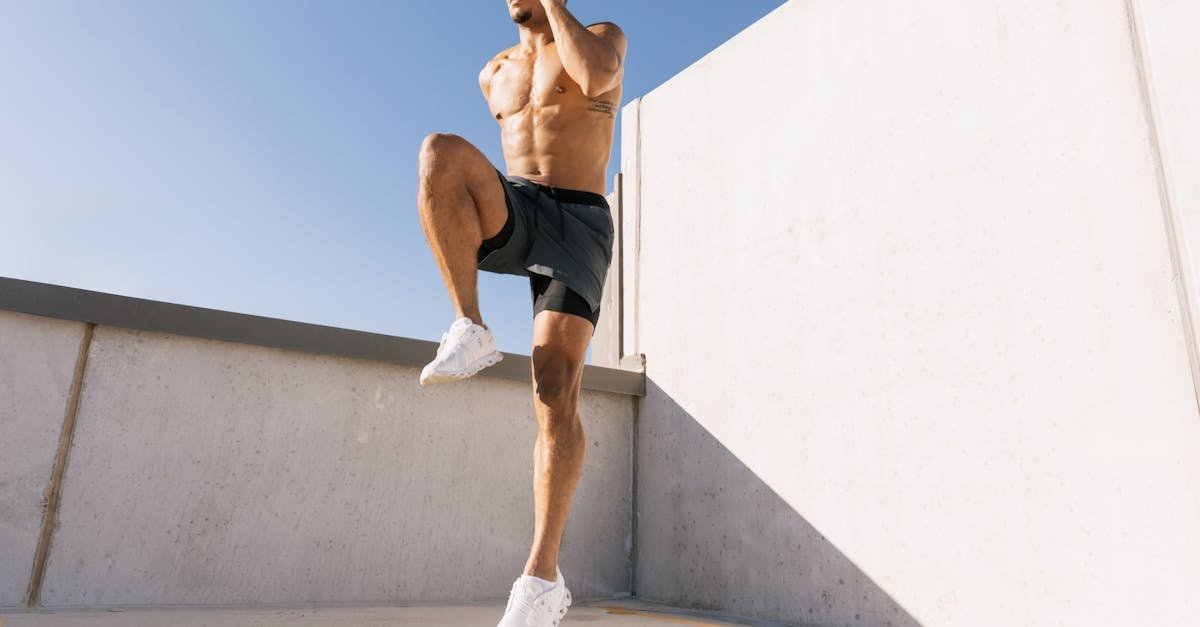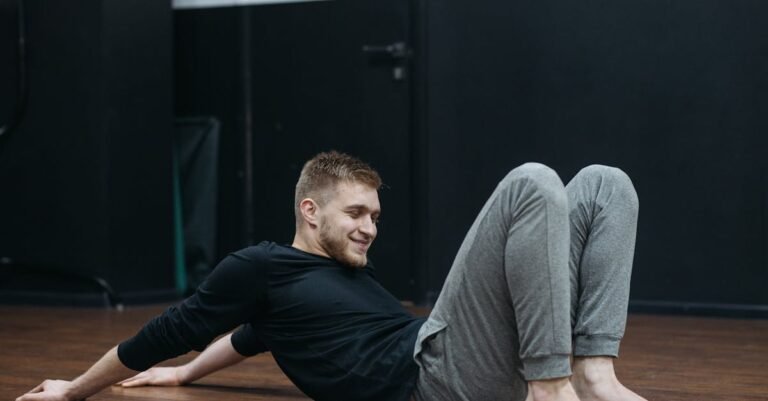Table of Contents
- Introduction: More Than Just Rest? Why Sleep is Your Secret Fitness Weapon
- The Science Behind Sleep and Fitness: What Happens When You Close Your Eyes?
- The Performance Plunge: How Sleep Deprivation Sabotages Your Workouts
- Recovery and Repair: Building Back Stronger While You Dream
- Sleep and Injury Prevention: Staying Safe in the Gym
- Optimizing Your Sleep for Peak Performance: Actionable Tips
- Conclusion: Sleep Your Way to Fitness Success
- Frequently Asked Questions (FAQs)
How Sleep Impacts Your Fitness Performance: Unlock Your Full Potential
Introduction: More Than Just Rest? Why Sleep is Your Secret Fitness Weapon
Let’s talk fitness. You’re hitting the gym, nailing your nutrition, maybe even tracking your macros like a hawk. You’ve got the latest gear, the perfect playlist, and you’re pushing hard. But are you seeing the results you crave? Are you hitting plateaus faster than you’d like, feeling sluggish during workouts, or maybe even getting sidelined by annoying little injuries? If this sounds familiar, I’ve got a question for you: How’s your sleep?
Seriously. We often treat sleep as a luxury, the first thing to get cut when life gets busy. We think of it as passive downtime, just switching off until the alarm jolts us back to reality. But what if I told you that sleep isn’t just rest? What if it’s actually one of the most powerful, potent, and criminally underrated tools in your entire fitness arsenal? Think of it less like hitting the pause button and more like plugging your body into the ultimate charging and repair station. Neglecting sleep is like trying to build a skyscraper on shaky foundations – eventually, something’s gotta give. In this deep dive, we’re going to explore exactly how crucial sleep is for smashing your fitness goals, from building muscle and boosting endurance to keeping injuries at bay. Get ready to unlock your true potential, starting tonight!
The Science Behind Sleep and Fitness: What Happens When You Close Your Eyes?
Okay, so you close your eyes, drift off… and then what? It’s not just blank darkness until morning. Your brain and body are actually incredibly active, running through complex cycles and processes that are vital for, well, everything – especially your physical capabilities. It’s like a highly choreographed nighttime ballet, essential for resetting and rebuilding.
The Sleep Cycles: REM vs. Non REM and Their Roles
You’ve probably heard of REM (Rapid Eye Movement) sleep – that’s the stage where you do most of your dreaming. But it’s just one part of the puzzle. Sleep is broadly divided into two main types: Non REM and REM sleep, and we cycle through these multiple times each night.
Non REM sleep itself has stages, progressing from light sleep to deep sleep. Stages 3 and 4 of Non REM sleep are often called “deep sleep” or “slow wave sleep.” Now, pay attention, because this is where the magic happens for fitness enthusiasts. During deep sleep, your body gets down to serious physical restoration. Blood flow to muscles increases significantly, delivering oxygen and nutrients needed for repair. This is prime time for tissue growth and repair, and crucially, it’s when your body releases the majority of its daily Growth Hormone (more on that powerhouse hormone in a sec!). Think of deep sleep as the construction phase, rebuilding the structures you stressed during your workout.
Then comes REM sleep. While deep sleep focuses on physical restoration, REM sleep is more about mental recovery. Your brain is highly active, almost like when you’re awake. This stage is crucial for processing information, consolidating memories (including muscle memory learned during training!), regulating mood, and problem solving. Ever woken up with a solution to a problem or feeling mentally refreshed after a good dream? Thank REM sleep. For athletes, this mental recharge translates to better focus, quicker decision making during activity, and improved learning of new skills or techniques.
Both Non REM (especially deep sleep) and REM sleep are essential. Skimping on sleep often means cutting short these vital later cycles, particularly REM and the final stages of deep sleep, short changing both your physical and mental recovery.
Hormonal Harmony: How Sleep Regulates Growth Hormone and Cortisol
Sleep isn’t just about resting muscles; it’s a master regulator of your body’s hormones, particularly two key players in the fitness game: Human Growth Hormone (HGH) and Cortisol.
Growth Hormone: Your Nighttime Repair Crew
Human Growth Hormone is like the foreman of your body’s nighttime construction crew. It plays a massive role in stimulating growth, cell reproduction, and regeneration. For anyone looking to build muscle, lose fat, or simply recover effectively from exercise, HGH is your best friend. And guess when the body releases the biggest pulse of HGH? Yep, during deep sleep. Studies show that a significant portion, sometimes up to 75%, of your daily HGH secretion occurs during those slow wave sleep stages. When you consistently miss out on quality deep sleep, you’re essentially telling the repair crew to take the night off. This directly impacts muscle protein synthesis (the process of repairing and building muscle fibers), bone growth, and fat metabolism. Less HGH means slower recovery, reduced muscle growth potential, and potentially finding it harder to shed body fat.
Cortisol Control: Taming the Stress Hormone
On the flip side, we have cortisol, often dubbed the “stress hormone.” While cortisol has important functions (like waking you up and mobilizing energy), chronically high levels are bad news. High cortisol promotes muscle breakdown (catabolism – the opposite of what we want!), encourages fat storage (especially around the belly), and suppresses the immune system. Sleep plays a crucial role in regulating cortisol levels. Normally, cortisol levels naturally decline in the evening and reach their lowest point during the first few hours of sleep, before gradually rising to help you wake up. However, sleep deprivation throws this rhythm completely out of whack. Lack of sleep leads to elevated cortisol levels, not just in the morning but often throughout the day and even into the evening. This puts your body in a prolonged catabolic state, making it harder to build muscle and easier to store fat, while also increasing your susceptibility to illness and burnout.
Think of it like this: Good sleep promotes the muscle building HGH and keeps the muscle breaking cortisol in check. Poor sleep does the exact opposite, creating a hormonal environment that actively works against your fitness goals.
The Performance Plunge: How Sleep Deprivation Sabotages Your Workouts
Okay, we’ve seen what’s happening (or not happening) behind the scenes. But how does this translate to your actual workout performance? Spoiler alert: it’s not pretty. Sleep deprivation is like trying to drive a sports car with watered down fuel and flat tires – you’re just not going to perform at your peak.
Energy Levels and Endurance: Running on Empty
This one might seem obvious, but it goes deeper than just feeling tired. Lack of sleep impairs your body’s ability to store glycogen – the primary fuel source for your muscles during moderate to high intensity exercise. When glycogen stores are low, fatigue sets in much, much faster. That run feels harder, you hit the wall sooner, and those last few reps feel absolutely impossible. Studies have shown significant decreases in endurance performance after just one night of poor sleep. Think about it: your muscles are literally running out of readily available fuel quicker than usual. It’s not just a feeling; it’s a physiological limitation caused by insufficient rest.
Strength and Power Output: Feeling Weaker? Blame Lack of Sleep
Trying to hit a new personal best on your squat or bench press after a night of tossing and turning? Good luck with that. Sleep deprivation doesn’t just sap your endurance; it directly impacts your maximal strength and power. Research indicates that even moderate sleep loss can lead to reduced force production in major muscle groups. Why? It’s likely a combination of factors: reduced neuromuscular function (your brain’s ability to effectively signal your muscles to contract forcefully), impaired HGH release slowing down muscle repair from previous sessions, and increased cortisol potentially breaking down muscle tissue. You might find you can’t lift as heavy, can’t perform as many reps, or your explosive power feels dampened. It’s incredibly frustrating when you know you *should* be stronger based on your training.
Reaction Time and Coordination: Clumsy Moves and Missed Lifts
Fitness isn’t just about brute strength or endless stamina; it requires coordination, balance, and quick reactions, especially in sports or complex lifts. Sleep deprivation significantly dulls your central nervous system’s processing speed. This means slower reaction times, impaired hand eye coordination, and poorer decision making. For athletes, this could mean missing a crucial catch or reacting too slowly to an opponent. In the gym, it could mean stumbling during a lunge, having sloppy form on a deadlift (hello, injury risk!), or misjudging a movement. That feeling of being slightly “off” or clumsy when you’re tired? It’s real, and it can directly impact both your performance and your safety.
Motivation and Mental Grit: The Willpower Drain
Let’s be honest: sometimes, the hardest part of a workout is just getting started, or pushing through when things get tough. Sleep deprivation absolutely crushes your motivation and mental resilience. When you’re tired, your perception of effort increases – meaning the same workout feels significantly harder than it would if you were well rested. Your willpower takes a nosedive, making it tempting to skip the gym altogether or cut your session short. Pushing through that final tough set requires mental grit, but lack of sleep erodes that resolve. It’s like your brain’s “give a damn” meter is running on empty. Consistent training requires discipline, and sleep deprivation makes maintaining that discipline exponentially harder.
Recovery and Repair: Building Back Stronger While You Dream
Exercise, particularly resistance training or intense cardio, creates microscopic damage to muscle fibers. This isn’t a bad thing! It’s the stressor that signals your body to rebuild bigger and stronger. However, this rebuilding process – the recovery and adaptation phase – doesn’t happen during the workout itself. It primarily happens during rest, and most critically, during sleep.
Muscle Growth (Hypertrophy): The Anabolic Window of Sleep
You might hear about the “anabolic window” post workout, but perhaps the most significant anabolic window occurs while you sleep. As we discussed, deep sleep is when HGH release peaks. This hormone is crucial for stimulating muscle protein synthesis – the process where your body uses amino acids (from the protein you eat) to repair those damaged muscle fibers and build new, stronger ones. Without adequate deep sleep, HGH release is blunted, significantly hindering this process. Furthermore, the elevated cortisol levels associated with poor sleep actively promote muscle breakdown (catabolism). So, insufficient sleep creates a double whammy: it reduces the signals for muscle building while increasing the signals for muscle breakdown. You could be working incredibly hard in the gym, but if you’re not sleeping enough, you’re essentially sabotaging your own gains by not allowing your body the optimal conditions to rebuild.
Tissue Repair and Inflammation Reduction
Beyond just muscle fibers, sleep is vital for repairing other tissues stressed during exercise, like tendons and ligaments. The increased blood flow to muscles during deep sleep delivers the necessary building blocks and removes metabolic waste products accumulated during exercise. Sleep also plays a key role in regulating inflammation. Exercise naturally causes some inflammation, which is part of the signaling process for repair. However, chronic inflammation, often exacerbated by lack of sleep, can hinder recovery, increase muscle soreness, and even contribute to overuse injuries. Quality sleep helps modulate the inflammatory response, keeping it in check and allowing the healing processes to occur efficiently. Think of it as your body’s internal housekeeping service, cleaning up the debris and patching things up overnight.
Sleep and Injury Prevention: Staying Safe in the Gym
This ties everything together. When you’re sleep deprived, you’re not just compromising performance and recovery; you’re actively increasing your risk of getting injured. How? Let’s connect the dots we’ve already discussed:
- Impaired Coordination and Reaction Time: As mentioned, being tired makes you clumsier and slower to react. This can lead to poor form during lifts (e.g., rounding your back on a deadlift), tripping during cardio, or misjudging movements, all of which significantly increase acute injury risk.
- Reduced Cognitive Function: Poor sleep affects judgment. You might push too hard when your body isn’t ready, ignore warning signs of fatigue or pain, or make poor choices about exercise selection or weight.
- Slower Recovery: If your tissues aren’t fully repairing between sessions due to lack of sleep (blunted HGH, high cortisol, poor tissue repair), you’re essentially overloading already weakened structures. This makes you much more susceptible to overuse injuries like tendonitis, stress fractures, or persistent muscle strains.
- Muscle Fatigue: Muscles fatigue faster when you’re sleep deprived. Fatigued muscles are less able to support joints properly and maintain correct form, again increasing the likelihood of injury.
Studies have consistently shown a strong correlation between shorter sleep duration and higher injury rates in athletes. Prioritizing sleep isn’t just about maximizing performance; it’s a fundamental aspect of staying healthy and avoiding setbacks that can keep you out of the gym for weeks or even months.
Optimizing Your Sleep for Peak Performance: Actionable Tips
Okay, convinced that sleep is non negotiable? Awesome! The good news is, you can actively improve your sleep quality and duration. It often requires conscious effort and building good habits, but the payoff for your fitness (and overall health) is immense. Here are some practical strategies:
Creating a Sleep Sanctuary: Your Bedroom Environment
Your bedroom should signal “sleep” to your brain, not “work,” “entertainment,” or “stress.” Treat it like a dedicated sleep zone.
- Keep it Dark: Use blackout curtains, cover LEDs on electronics, or wear an eye mask. Even small amounts of light can disrupt melatonin production, the hormone that regulates sleep wake cycles.
- Keep it Cool: Most people sleep best in a cool room, typically between 60 67 degrees Fahrenheit (15 19 Celsius). Experiment to find your ideal temperature.
- Keep it Quiet: Use earplugs if necessary, or try a white noise machine or app to mask disruptive sounds.
- Comfort is Key: Invest in a comfortable mattress and pillows that support your preferred sleeping position.
Consistent Sleep Schedule: The Power of Routine
This is arguably the most impactful tip. Your body loves rhythm. Try to go to bed and wake up around the same time every day, even on weekends. Yes, I know, weekends are tempting for sleeping in, but large variations disrupt your internal body clock (circadian rhythm), leading to that groggy “social jetlag” feeling. Consistency reinforces your natural sleep wake cycle, making it easier to fall asleep and wake up feeling refreshed.
Pre Bed Rituals: Winding Down Effectively
You can’t expect to go from 100 mph to zero the moment your head hits the pillow. Create a relaxing routine for the 30 60 minutes before bed to signal to your body that it’s time to wind down.
- Dim the Lights: Lower the lighting in your home in the hour or two before bed.
- Disconnect from Screens: The blue light emitted from phones, tablets, and computers suppresses melatonin. Try to avoid screens for at least an hour before bed. If you must use them, use blue light filters or night mode settings.
- Relaxing Activities: Read a physical book (not on a backlit device!), take a warm bath or shower, listen to calming music or a podcast, do some light stretching or meditation, or practice deep breathing exercises.
- Avoid Stressful Conversations or Tasks: Don’t tackle work emails or have intense discussions right before trying to sleep.
Nutrition and Hydration: Fueling Sleep
What you eat and drink, and when, can impact your sleep.
- Avoid Heavy Meals Close to Bedtime: Digesting a large meal can be disruptive. Finish dinner at least 2 3 hours before bed. If hungry later, opt for a small, light snack.
- Limit Caffeine and Alcohol: Avoid caffeine (coffee, tea, soda, energy drinks, even some chocolate) in the afternoon and evening (generally 6 8 hours before bed). While alcohol might make you feel drowsy initially, it disrupts sleep architecture later in the night, particularly REM sleep.
- Stay Hydrated, But Don’t Overdo It: Drink plenty of water throughout the day, but try to taper off fluid intake in the hour or two before bed to avoid nighttime bathroom trips.
- Consider Sleep Promoting Nutrients: Some find foods rich in magnesium (leafy greens, nuts, seeds) or tryptophan (turkey, dairy, nuts) helpful, though consistency in overall diet is more important than specific “sleep foods.”
Conclusion: Sleep Your Way to Fitness Success
So, there you have it. Sleep isn’t just a passive activity or a time filler; it’s an active, essential process that underpins nearly every aspect of your fitness journey. From regulating hormones crucial for muscle growth and fat loss, like HGH and cortisol, to restoring energy levels, consolidating motor skills, repairing damaged tissues, and even keeping you safe from injuries – sleep is doing heavy lifting while you’re resting. Trying to achieve peak fitness without prioritizing sleep is like trying to race a car with the handbrake on. You might move forward, but you’ll never reach your true speed or potential, and you risk burning out the engine.
Stop thinking of sleep as optional or something to catch up on later. Start viewing it as a fundamental pillar of your training program, just as important as your workouts and your nutrition. By implementing strategies to improve your sleep quality and consistency, you’re not just investing in better rest; you’re investing in faster recovery, stronger performance, enhanced muscle growth, reduced injury risk, and ultimately, reaching your fitness goals more effectively and sustainably. Sweet dreams, and even sweeter gains!
Frequently Asked Questions (FAQs)
1. How many hours of sleep do I really need if I’m active?
While the general recommendation is 7 9 hours for adults, athletes or highly active individuals often need more due to increased physical demands and recovery needs. Many find their sweet spot is closer to 8 10 hours. Pay attention to how you feel – if you consistently wake up tired, struggle with workouts, or get sick often, you might need more sleep, regardless of the clock.
2. Does it matter when I sleep, or just the total duration?
Both matter! Total duration is crucial for cycling through all sleep stages, but timing (consistency) is key for aligning with your natural circadian rhythm. Sleeping from 10 PM to 6 AM consistently is generally better for hormonal balance and overall sleep quality than sleeping from 2 AM to 10 AM, even if the duration is the same, because it better aligns with natural light cycles and hormone release patterns.
3. Can naps help make up for poor nighttime sleep if I’m training hard?
Naps can be beneficial, especially for alertness and performance, but they aren’t a perfect substitute for consolidated nighttime sleep. A short nap (20 30 minutes) can boost alertness without causing grogginess. Longer naps (around 90 minutes) allow for a full sleep cycle, potentially aiding recovery. However, relying heavily on naps might indicate underlying issues with nighttime sleep quality or quantity that need addressing. Also, napping too late in the day can interfere with falling asleep at night.
4. Will sleeping too much negatively impact my fitness?
Consistently oversleeping (e.g., more than 10 11 hours regularly for an adult without significant sleep debt) can sometimes be associated with lethargy or underlying health issues. However, for most active people worried about performance, the problem is far more likely to be too little sleep rather than too much. If you naturally sleep 9 10 hours after hard training days and feel good, that’s likely what your body needs for recovery. Chronic oversleeping without feeling rested might warrant a check up.
5. Can specific supplements improve sleep for better fitness recovery?
While foundational sleep hygiene habits are most important, some supplements may help certain individuals. Magnesium (particularly forms like glycinate or citrate) can support relaxation. Melatonin can help regulate the sleep wake cycle, especially for shift work or jet lag, but long term use effects aren’t fully known. Tart cherry juice contains natural melatonin and anti inflammatory compounds. Always consult with a healthcare professional before starting any new supplement, as they can interact with medications or have side effects. Focus on behavior and environment first!










